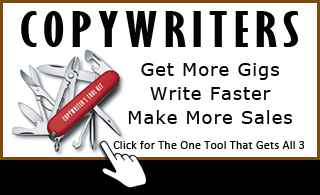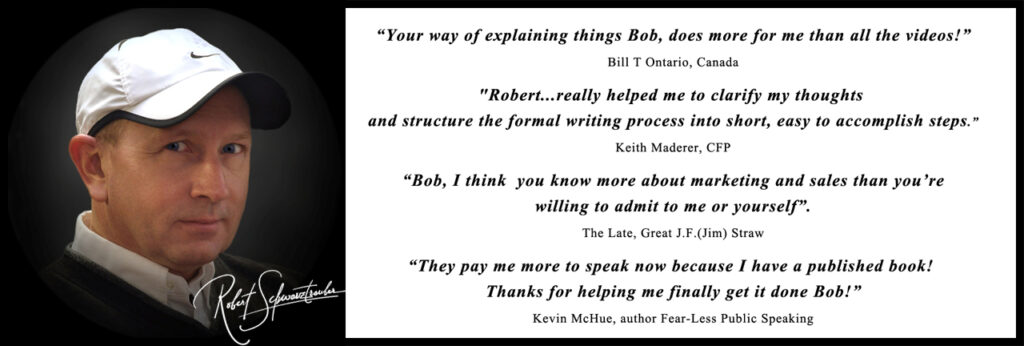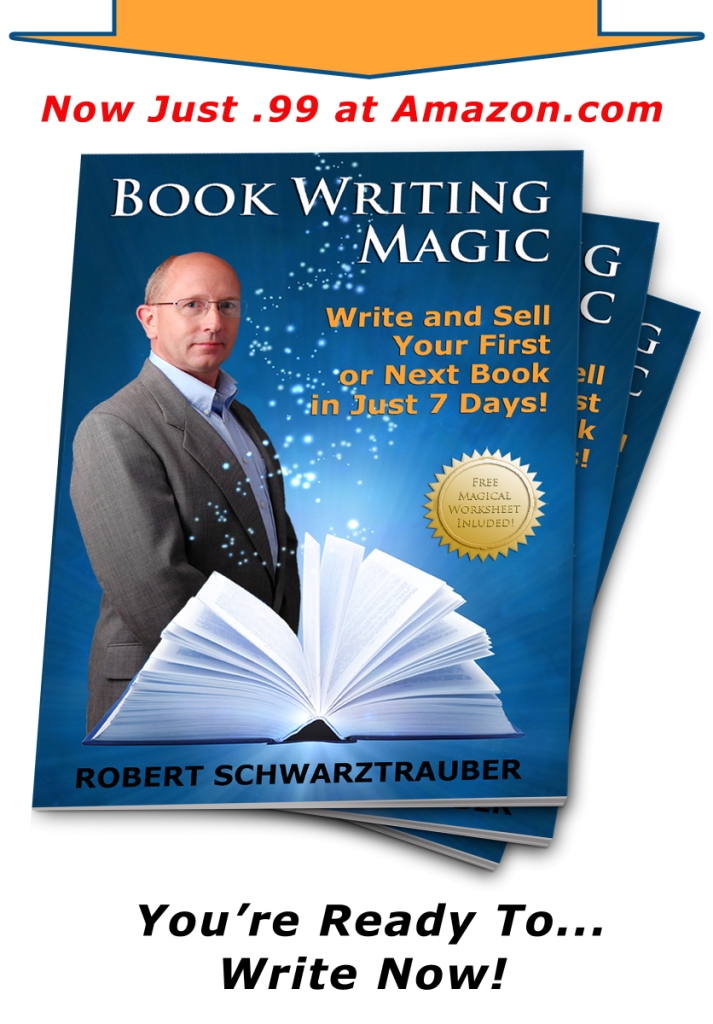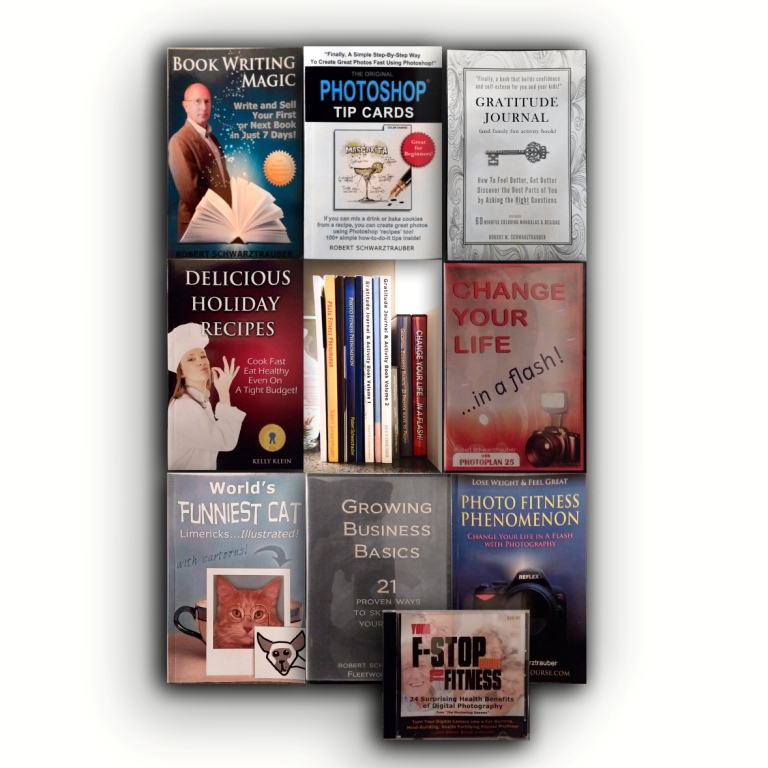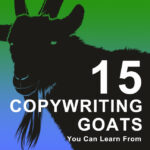
Get Copywriting Examples from These 15 GOATs
Eager to become a top-notch copywriter?
There are two paths you can take:
- Stumble, fumble and fight to figure it all out on your own, which will likely waste time and money, or…
- Take a shortcut. Learn and earn faster by feasting on the bones of those who blazed a path before you.
You need to study the masters.
Learning from the iconic copywriters of the past and present is the fastest and best way to absorb proven formulas, principles, and skills. Their time-tested books, ads, sales letters, and teachings comprise a masterclass in persuasive writing.
To help aspiring copywriting students, and even veteran copywriters sharpen their chops, here are…
15 Copywriting Legends
~ ~ ~
Enjoy, learn from and emulate these greats, listed in no particular order:
1. David Ogilvy
Known as the “Father of Advertising,” David Ogilvy founded one of the biggest ad agencies in the world, Ogilvy & Mather. His bestselling books “Ogilvy on Advertising” and “Confessions of an Advertising Man” are required reading for any copywriting student.
Ogilvy’s iconic ads for brands like Rolls-Royce and Dove cemented his status as the most influential copywriter of the 20th century. See Ogilvy’s work, 100’s of articles and theories at Ogilvy.com
2. Claude Hopkins
Credited with pioneering many direct response tactics still used today, Claude Hopkins wrote the short, classic, and most essential books for copywriters, “Scientific Advertising” in 1923. He was among the first to test, track and optimize copy systematically.
David Ogilvy famously said, words to the effect, “No one should have anything to do with advertising until they’ve read “Scientific Advertising” 10 times”.
Like most of the old time copywriting legends, you should grab a hot cup of joe or your favorite herbal tea and Google his name. You won’t have to worry about what to do for the rest of the day.
3. John Caples
In the 1920s and 30s, John Caples took the lead in crafting magazine ads and pioneering key direct marketing techniques. His book “Tested Advertising Methods” compiled these breakthroughs for other copywriters to study. For nearly 60 years, at the top ad agency BBDO John was king, a pioneer in the techniques of effective ad testing.
Google John Caples and prepare yourself to go deep, deep, deep down the rabbit hole.
4. Gary Halbert
Gary Halbert is regarded as one of history’s best copywriters for direct mail promotions. With clients like Newsweek and Weight Watchers, he mastered the art of long-form sales letters and “everyday language that sells.” His “pull-no-punches” style, famous for wearing the hat embroidered, “Clients Suck” Gary gives you the straight poop on why people buy in a entertaining style you’ll never forget.
Read Halbert’s teachings on copywriting mastery at : https://www.thegaryhalbertletter.com/
You can, for now, still get free pdf copies of his infamous, Boron Letters here
5. Eugene Schwartz
At the forefront of behavioral psychology in advertising, Eugene Schwartz wrote iconic books like “Breakthrough Advertising”. He crafted brilliantly persuasive long-form letters for clients like The New York Times. Eugene was one of a handful of old great masters whose work and teachings still help copywriters today.
A great copywriter in his own right, Brian Kurtz has great info and tons of examples and discussion of Eugene Schwartz at: TitansMarketing.
6. Joe Sugarman
Dubbed “The Mail Order Maverick,” Joe Sugarman demonstrated innovative direct marketing through print ads and long-copy letters. His classic books include “Advertising Secrets of the Written Word” and “Triggers”. “The Adweek Copywriting Handbook” is a great resource for learning more about Joe. Famously, Joes was the genius marketer behind the hugely successful promotion of “BlueBlocker Sunglasses”.
Sugarman’s gone now, but you can Goolgle his name and find tons of examples, articles and info on him. Neil Patel has a good article about 7 of Joe’s teachings we can all learn from at: https://neilpatel.com/blog/joseph-sugarman/
7. David Deutsch
A contemporary Facebook ads expert, David Deutsch routinely achieves remarkable results with social media marketing. His book “Think Inside the Box” provides key lessons for modern digital copywriting.
Get tips on persuasive online copy at Deutsch’s blog, https://davidldeutsch.com/
8. Joanna Wiebe
Known for her mastery of copywriting across online media, SEO, and content marketing, Joanna Wiebe shares practical advice in books like “Copy Hackers Handbook”. She co-founded the prominent copywriting blog Copyblogger.
Learn from Wiebe’s teachings on digital copywriting at: https://copyhackers.com/
9. Drayton Bird
Credited with pioneering many direct marketing methods still in use, British copywriter Drayton Bird made his name writing long, meticulously-tested sales letters. He regularly shares his up to date wisdom, teachings, and what’s currently working through his website and email newsletter. His book, “How To Write Sales Letters That Sell” is a must read for every copywriter. You’ll enjoy his humorous, on-the-nose, common sense style. He’s worked for just about every major corporation and it’s hard to find another copywriter who doesn’t point to Drayton Bird as “the Man”.
Check out Drayton’s common sense copywriting free guides, and tutorials, plus his entertaining videos at https://DraytonBird.com –Be sure to sign up for his email newsletter.
10. Gary Bencivenga
A legend in the craft of long-form sales letters, Gary Bencivenga routinely produced control packages that broke industry response records. He is renowned for seamlessly blending stories and sales psychology. Retired from copywriting and public life…
Gary Bencivenga shares his wisdom now at: https://marketingbullets.com/
11. Clayton Makepeace
Clayton Makepeace is one of the most celebrated and respected copywriters of the past 20 years. He built his reputation writing breakthrough promotion copy and selling information products via long form sales letters. His educational books include “The Ultimate Sales Letter”. All too soon gone, Clayton was a pro andreal gentleman. He left this world in 2020 at the age of 67.
His website is now gone, but anyone can find a plethora of swipes, examples, lessons from Clayton Makepeace simply by GooglIng his name.
12. Alen Sultanic
Today’s expert in online marketing and conversion optimization, Alen Sultanic focuses his teachings on crafting persuasive copy for landing pages and digital ads. His course, “The Landing Page Sales Funnel Blueprint” is hugely popular.
Learn Sultanic’s approach to high-converting web copy and stay up to date on what’s working right now by joining his Facebook Group at: https://www.facebook.com/groups/nothingheldback/
13. John Carlton
Dubbed “the most respected and ripped-off veteran copywriter in the world,” John Carlton was a contemporary of Gray Halbert’s and is known for long, aggressive hard-sell promotions, like “The One Legged Golfer”
Check out Carlton’s rants, copywriting guides and tutorials at: https://www.john-carlton.com/marketing-tips/
14. Alex Brue
The co-founder of Copyhackers, Alex Brue has achieved tremendous results writing Facebook ads and online sales funnels. His educational Copy School trains aspiring digital copywriters.
Learn Brue’s approach to persuasive online copy at Copyhackers.com.
15. Ben Settle
An expert in long-form sales letters for digital products and THE EXPERT for writing emails that covert, Ben Settle takes an edgy “direct response” approach focused on maximum persuasion and profit. His many books include his “Confessions of A Persuasion Hitman” series, “Epic Copy” and his famed monthly subscription, “Email Players Newletter”
Access Ben Settle’s high-intensity copywriting trainings at: https://bensettle.com/.
Wrapping Up
~ ~ ~
This covers 15 of the most brilliant copywriting masters every student should study and model. From early pioneers to contemporary experts, when you absorb their teachings, you ‘re on the fastest path to copywriting success.
For guidance and resources to sharpen your copy skills, be sure to explore the websites above and dive into the books written by these icons of the craft. You’ll be well on your way to expert-level persuasion in no time!
The Next Step To Copywriting Success
~ ~ ~
The one common element you find, at the core of each legend’s success, is an intimate knowledge of the market they are attempting to sell in. Without that deep knowledge you’ll be banging your head wondering why vegans won’t buy your Omaha steaks.
Seems ridculous in it’s simplicity, right?
But not knowing their core desires, the real reasons behind why they buy, (which are often hidden behind a veil of public embarassment they’ll never disclose) your promotions will draw nothing but crickets.
Your kids will be skinny. Your bank account even thinner.
If you’re a marketing genius like these guys, go ahead and bang out that winning promotion.
Most of us, are better served using tools, power tools to help us dig out the buyer hot buttons, the hidden agendas, the key motivators that are realy driving response and conversion.
Tools like those included in The Copywriters Persuasion Toolkit.
Here’s to your happy reading and your ultimate success!
– Robert Schwarztrauber


